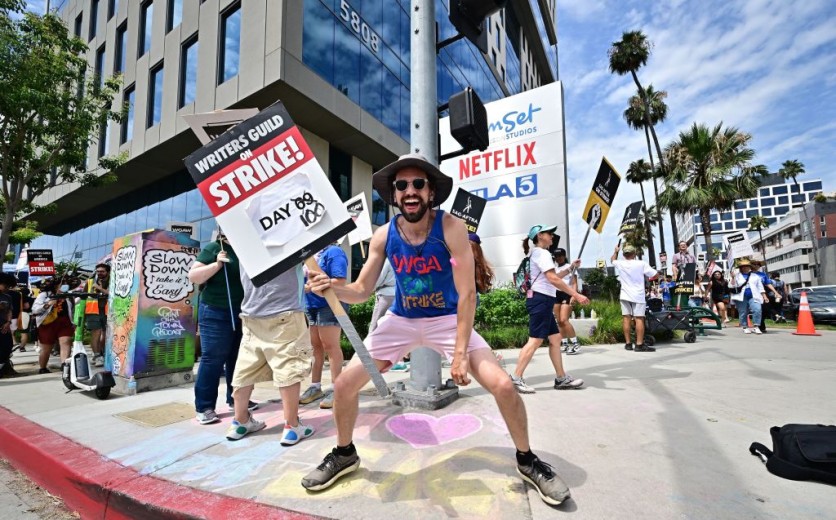Amid the ongoing strikes by the Writers Guild of America (WGA) and the Screen Actors Guild-American Federation of Television and Radio Artists (SAG-AFTRA), Hollywood studios have unveiled a new proposal to resolve the standoff. The proposal includes substantial wage increases for writers, protections against using Generative Artificial Intelligence (GAI), and other provisions.

Alliance of Motion Picture and Television Producers' Proposal
The strikes, which have seen writers picketing outside major studios for over 100 days, primarily stemmed from disagreements on wage increases and residuals. The Alliance of Motion Picture and Television Producers (AMPTP) presented its proposal to the Writers Guild of America on August 11, introducing a multi-year contract with a notable wage increase structure.
That entails a 5% increase in the first year, 4% in the second year, and 3.5% in the third year, totaling a compounded 13% increase. While not meeting the WGA's initial demand for wage increases, the offer does raise writers' minimum weekly rates significantly.
Moreover, the proposal ensures writers a minimum of 10 weeks of employment, addressing a point of contention that had previously stalled negotiations. The AMPTP has also increased the total residuals for writers over three years, aiming to bridge the gap between the two sides' expectations.
AI Protection
One notable feature of the proposal is the protection against using generative AI in the creative process. The proposal clarifies that material produced by GAI will not be considered literary material.
Writers using GAI-generated content will not face disadvantages in terms of compensation, credit, or separate rights, as per the proposal. The proposal also introduces enhanced data transparency, recognizing the evolving landscape of the entertainment business due to the internet.
For the first time, the AMPTP plans to provide viewership data through quarterly confidential reports to the WGA. This data will include total Streaming Video On Demand (SVOD) view hours per title, enabling the WGA to develop future proposals related to the current SVOD residual structure.
Carol Lombardini, President of the AMPTP, emphasized the commitment to ending the strike and addressing the writers' concerns. She highlighted the significance of writers in the industry and their role in creating content.
"Our priority is to end the strike so that valued members of the creative community can return to what they do best and to end the hardships that so many people and businesses that service the industry are experiencing," Lombardini said in a statement.
"We have come to the table with an offer that meets the priority concerns the writers have expressed. We are deeply committed to ending the strike and are hopeful that the WGA will work toward the same resolution," she added.
New Provisions
The comprehensive package also introduces novel provisions, such as a structure to train writers as future showrunners. It includes guaranteed lengths of employment and mandates that at least two mid-level writers be assigned to productions.
The Showrunner can choose these mid-level writers; each is guaranteed at least 20 weeks of employment. While the proposal marks significant progress, the negotiations are ongoing.
The AMPTP noted that it remains dedicated to reaching an equitable agreement that would allow the industry to resume creating the TV shows and movies that captivate global audiences.
The proposal's details, outlining wage increases, protections against GAI use, and other provisions, have been presented to the WGA as part of the AMPTP's efforts to end the strike and return to productive filmmaking and television production.

ⓒ 2026 TECHTIMES.com All rights reserved. Do not reproduce without permission.




